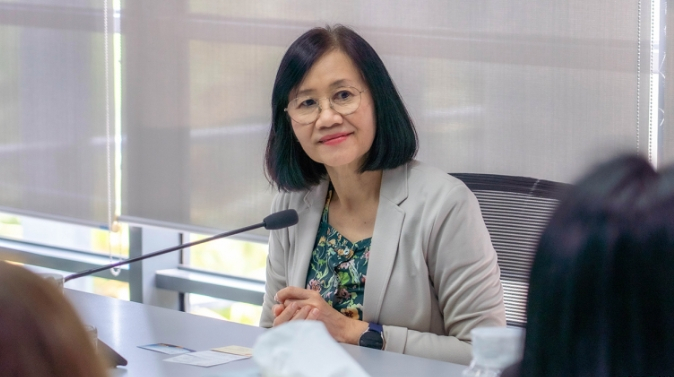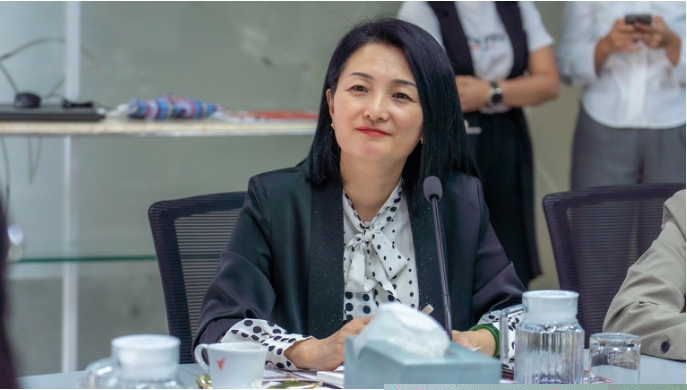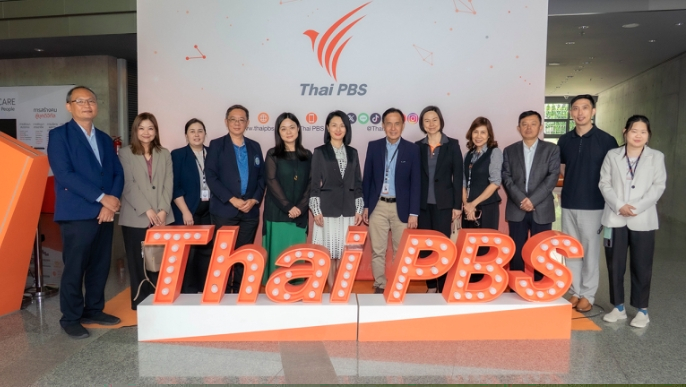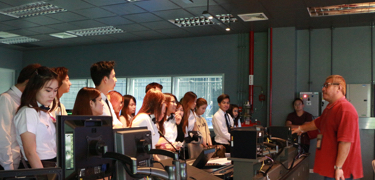On April 18, 2015, the Thai Public Broadcasting Service of land (Thai PBS), led by Assoc. Prof. Dr. Wilasinee Phiphitkul, Director General of Thai PBS, welcomed a group of media from the All China Journalists Association (ACJA), led by Mrs. Li Xiaojun, Vice President of the Association, along with representatives from the Thai Journalists Association, who traveled to discuss with the executives and staff of Thai PBS World under the Thai-Chinese Media Exchange Program.

Assoc. Prof. Dr. Wilasinee said that Thai PBS is a Thai public media service established under its specific statute, focusing on working for the public interest, without relying on government or private sector funding, to create neutrality, credibility, and focus on presenting diverse issues that may not appear in mainstream media, such as promoting education, child and youth development, and supporting marginalized groups.

In the past 3 years, Thai PBS has systematically entered the Digital First era, adjusting its working methods to report news online immediately before broadcasting on television. Ready to develop new content formats that meet the needs of digital-age viewers, such as The Visual, presenting stories in the form of Data Storytelling, such as 'THE BAG - Heavy Baggage on Children’s Shoulders'. At the same time, it has also developed the VIPA platform, an online streaming service without charge and ads, along with the C-site platform that allows more than 5,000 citizen journalists nationwide to participate in reporting news, conveying stories and reflecting the perspectives of their communities. All of this promotes a strong public media ecosystem, distributes opportunities and opens up space for citizens to participate in creating a quality society.

Ms. Li said during her visit to Thai PBS that she felt comfortable and impressed when she visited, and also felt the identity of a true public media, especially the working approach that does not only develop technology and content, but also focuses on creating a 'media ecosystem' that allows citizens to rise and communicate stories of their communities creatively and powerfully. She also mentioned the direction of the media in China, saying that they are moving forward with a policy of adapting to the Digital First era by prioritizing the presentation of content through online platforms first before broadcasting on television.


